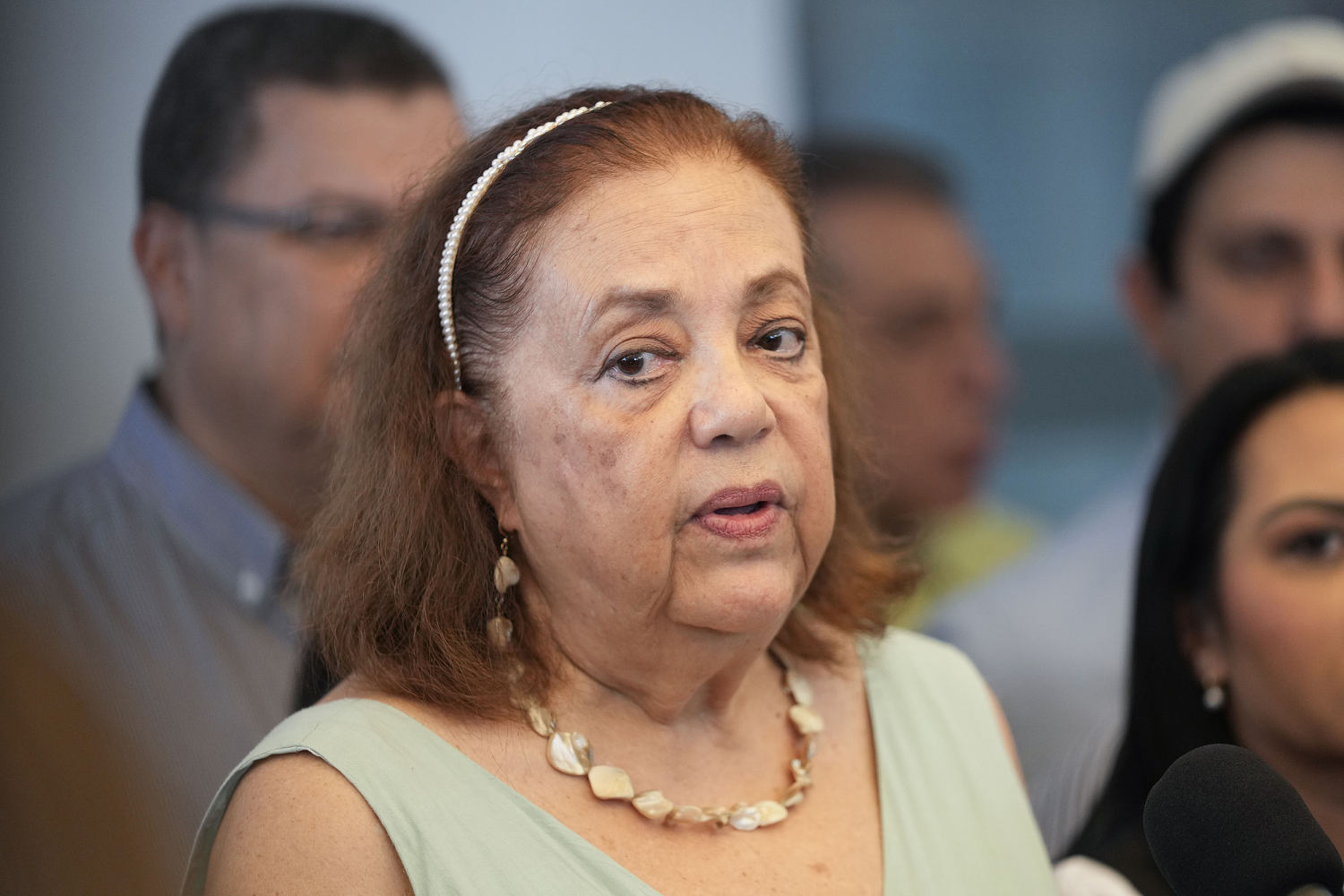Venezuela opposition leader says Yoris remains coalition candidate despite

CARACAS — Corina Yoris remains the major opposition coalition’s presidential candidate in Venezuela’s July elections, opposition leader and former hopeful Maria Corina Machado said on Tuesday, even though Yoris was not able to register for the contest.
The coalition was left without a candidate in the race after the opposition was unable to access the electoral authority’s online system to register 80-year-old Yoris before the expiry of Monday’s deadline.
Yoris was named as the opposition candidate last week by Machado, who won the opposition nominating contest by a landslide last year to run against incumbent President Nicolas Maduro, but has been banned from holding public office.
“Our candidate is Corina Yoris,” Machado told journalists on Tuesday morning.
Asked if she would consider an alliance with Manuel Rosales, the current governor of Zulia province, who registered just before the expiry of a Monday deadline, Machado said she is taking decisions “day by day.”
“The country is processing a huge disappointment,” Machado said. “We will not be moved from an electoral process where Venezuelans can freely choose to elect who they want, not who is imposed by the regime.”
Rosales, who some in the opposition say has become too close to the ruling party during his governorship, belongs to the A New Time party, which until Monday had backed Machado.
“I had to take a decision, it was either open a space for Venezuelans to vote or go to abstention and Maduro stays six more years there without doing anything,” Rosales told journalists on Tuesday about his eleventh-hour registration.
He did not respond clearly to questions about how he was able to register when others were not.
It was predictable that the Maduro government would restrict the possibilities for the opposition to participate in the elections, said political consultant Piero Trepiccione, who added that voters want change.
“What obviously opens up now is a period of negotiation, of understandings, of deals to see if the candidates stay or are substituted by others,” said Trepiccione, referring to Rosales and Enrique Marquez, a former member of the national electoral council who registered as an independent.
Parties have until April 20 to name any substitutes for registered candidates.
Some of the opposition may back Rosales, said analyst Ricardo Rios, who runs the Poder & Estrategia consultancy in Caracas, while others may continue pushing for election guarantees.
“While they seek those electoral conditions time will pass and it will become reality that they don’t participate [in the vote],” he said.
“Rosales alone cannot channel electoral energy [for the opposition], he needs the support of other consolidated parties and principally Maria Corina,” said Oswaldo Ramirez, director of ORC Consultancy.
The ruling party has not commented on the inability of Yoris to register, but the electoral council is expected to confirm the identities of 13 people who have registered for the election on July 28.
Maduro, a 61-year-old former bus driver, successfully registered on Monday to seek a second re-election for another six-year term.
The arrests of close Machado allies last week, as well as the issue of warrants for the capture of seven others, prompted international outcry.
The United States started re-imposing sanctions and warned about the April expiry of oil sanctions relaxations after Machado’s public office ban, imposed over her support of U.S. sanctions and accusations of corruption that she denies, was upheld in January.
A White House National Security Council spokesperson said the U.S. was deeply concerned that Yoris was unable to register and was working with other members of the international community to ensure Venezuelans could participate in inclusive and competitive elections.
“As we stated in January, we are committed to maintaining sanctions relief if Maduro upholds the commitments outlined in the agreed-to Barbados electoral roadmap,” the spokesperson said, referring to the October electoral deal that originally led the U.S. to relax some sanctions.
Venezuela’s neighbors Colombia and Brazil, which both have leftist presidents, each expressed concern in their own statements, urging compliance with the electoral deal.
Read More: Venezuela opposition leader says Yoris remains coalition candidate despite

